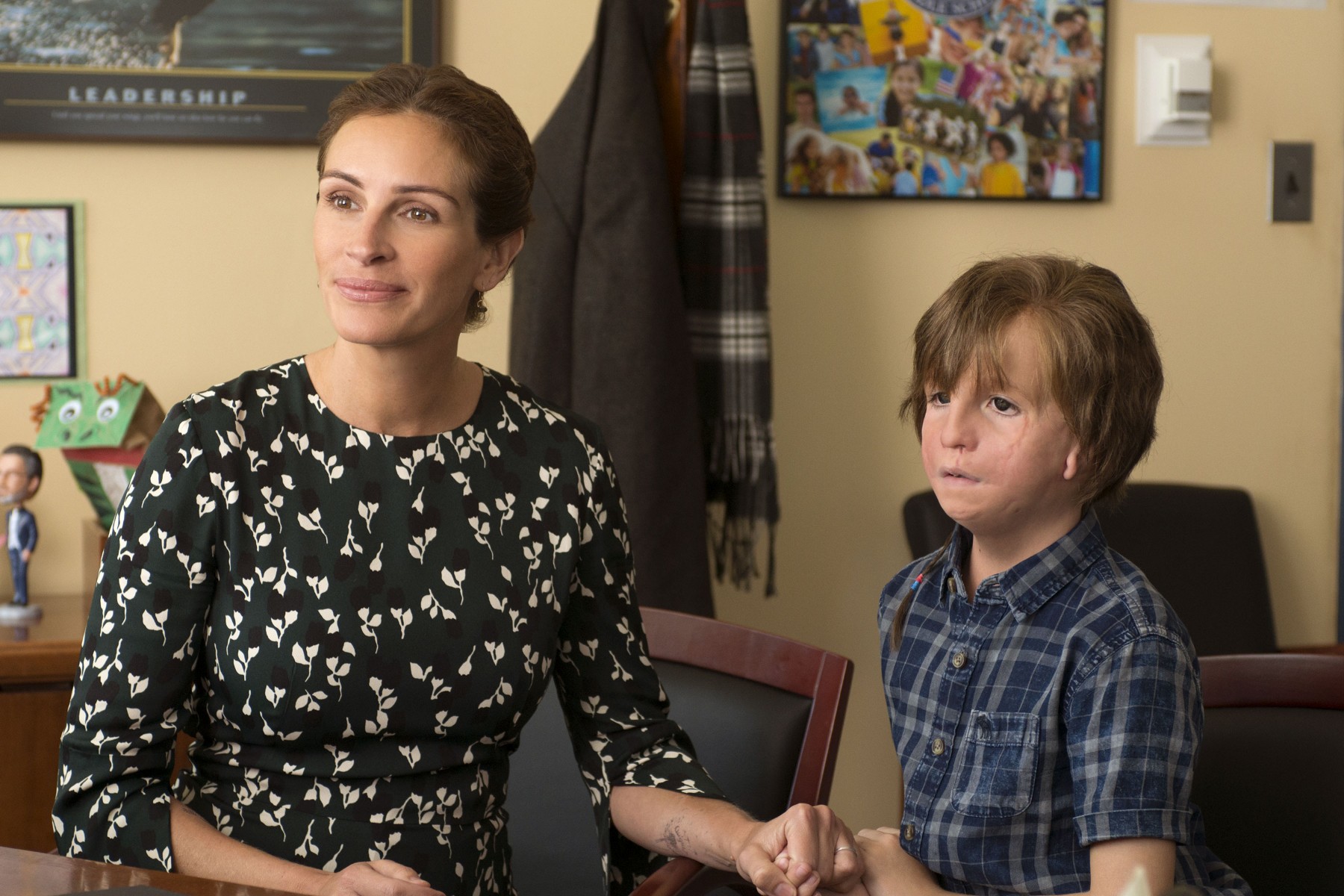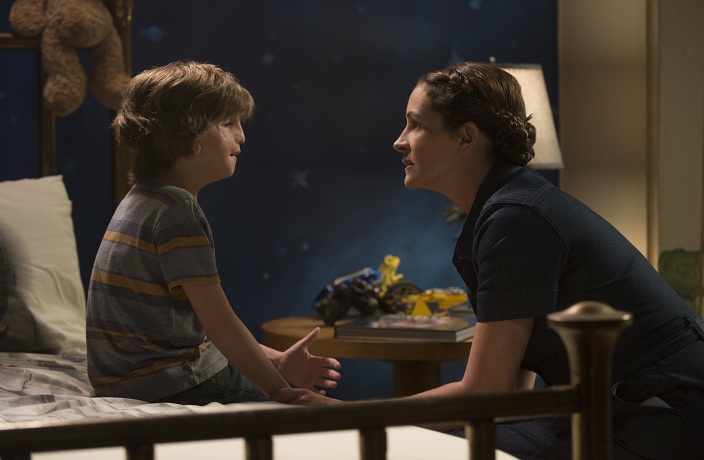The term ‘tearjerker’ has a somewhat negative connotation, but when a film tells a moving family story and handles a difficult subject like childhood disability with as much depth and nuance as 2017's Wonder, it’s not surprising that audiences have been moved to tears.
The film centers on Auggie, a 10-year-old boy with a facial deformity due to Treacher Collins syndrome, who has been homeschooled by his mom in their upscale Manhattan brownstone. As he enters fifth grade, he’ll be attending school for the first time, despite his parents’ (played by Julia Roberts and Owen Wilson) fear that he’ll have a tough time fitting in.
In the lead role of Auggie is Jacob Tremblay, a talented child actor who found fame in 2015 after starring as the 5-year-old narrator in Room. His acting is just as impressive here, and makes all the difference in depicting Auggie as a relatable and realistic 10-year-old child. As a science whiz who’s especially adept at delivering witty one-liners, his character helps defy stereotypes about children with facial deformities.

What makes Wonder stand out most, however, is that just when you think you’ve got the story’s tone and themes figured out, the perspective changes completely. The story moves away from Auggie and focuses on other characters, beginning with Auggie’s sister Via, who until that point is depicted as somewhat moody and unsympathetic to her brother. However, once we see things from her perspective, she becomes much more relatable, and the mother-daughter relationship between Via and Julia Roberts’ character is the film’s most poignant subplot. This switch in perspective happens several times throughout Wonder, filling in the backstories of Auggie’s friends and family so that each one becomes a rich, complex character.
An important theme emerges thanks to this narrative technique: while it’s essential to show compassion for somebody who has an obvious physical difference, we also can’t know what any person is going through just because they look ‘normal’ or happy on the surface, so everyone deserves kindness and compassion. The film’s tagline #choosekind is a nod to this.
Even Wonder's main ‘villain,’ a bully named Julian who torments Auggie for much of the film, is given a sympathetic treatment when some insight emerges about his family and the way he’s treated at home. Throughout the film, the viewer’s expectations are subverted, which helps Wonder avoid becoming overly sentimental or cliché.
Much of this skillful storytelling comes thanks to the film’s director, Stephen Chbosky, who’s best known as the author of celebrated coming-of-age novel, The Perks of Being A Wallflower. Chbosky adapted his own novel for the screen back in 2012, so he was highly qualified to direct this kind of film (Wonder was adapted from a novel of the same name by R. J. Palacio).

Wonder was one of the most acclaimed movies of last year, but it did have a few detractors. One major complaint was the sanitized and glossy way in which Auggie’s disability is depicted. In particular, as a child of two wealthy Manhattanites who have a near infinite amount of medical and educational resources at their fingertips, his experience is far from typical for a child growing up with a disability. For this reason, Wonder should ideally be one of several films and books used in tandem to teach children about disabilities.
But ultimately, the film’s emotional authenticity, surprising narrative format, and stellar performances from both Julia Roberts and Jacob Tremblay completely won us over, and we think Wonder is essential viewing for both children and adults.
Click here for more movie reviews


















